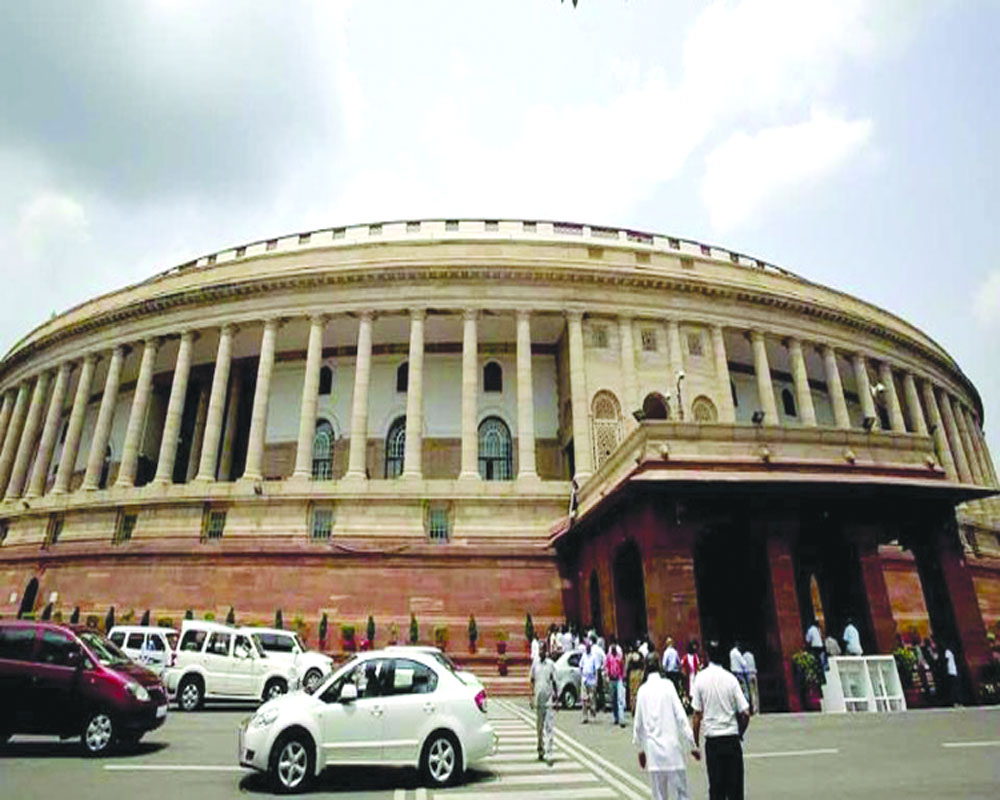Sensitive Bills must be discussed and deliberated upon rather than being hurried through for political point-scoring
Who wouldn’t want a Parliament session to be productive? So the news that a record number of Bills are being introduced and pushed through the House, breaking a 15-year record of inefficiency, should be heartening. Except that it is not, despite all the propaganda about a “New India” narrative. There is nothing wrong with writing new chapters frankly, provided they respect parliamentary convention, public accountability, procedural propriety and have consensual transparency as is tradition. But to overturn and deny everything past as wrongdoing with brute force is not only immature and self-promoting but challenging the wisdom of our founding fathers and the spirit of the Constitution, which ensured that parliamentary democracy would always be participative with in-built checks and balances. Therefore, there is some credence to the theory that sensitive Bills, that in the end impact the lives of all citizens and who themselves need to avail the law in the first place, should be duly deliberated, discussed and shared in the public domain. Clearly, the Modi 2.0 government is under pressure as in its earlier version, it had promulgated several Ordinances in February and March with an eye on swinging the Lok Sabha verdict with a stock of political capital. It, now, is under extreme pressure to convert 10 Ordinances, including the politically sensitive Triple Talaq, into Acts of Parliament within 45 days of beginning a new House session or risking their lapse. That means diluting the agenda it had pursued for so long. Of course, the government is claiming that some of the older Bills had gone through a consultative and debating process in the 16th Lok Sabha and do not merit a carry-over debate in the new House to save time. But the fact of the matter is that this is a new House with new members and perspectives and no matter how detailed previous discussions were, they need to be re-introduced. Already Opposition MPs are claiming that the proposed Bills are being circulated in such a narrow window that it allows little time for introspection, questioning and amendments and are as good as being passed without consent.
The Right to Information Act has been predictably the first casualty, the government whittling down its efficacy and the institutions formed by it to tame some of the criticism of accountability that it encourages. The new RTI strips the Information Commissioners from the immunity they had as equivalent to Supreme Court judges and Chief Election Commissioners so far, subjecting their service records, tenure and salaries to the discretion of the government or the Executive. Effectively, it means defanging them for the government can remove them when it considers them unsuitable to its design. A fixed tenure and autonomy regardless of the government of the day would enable them to pursue fair probes. Otherwise, they would be afraid to be independent. Even our first Chief Information Commissioner, Wajahat Habibullah, and other bureaucrats had written to the Prime Minister Narendra Modi against the amendments. Modi, who has made running a corruption-free government his professed mantra since 2015, clearly stands to lose credibility and seem arrogant by pushing something antithetical to that spirit. The Information Commissions are anyway dependent on retired bureaucrats and now likely loyalists. With new amendments, they will be more subservient. But the Government rustled up numbers in the Upper House after having worked on fence-sitters like Biju Janata Dal and YSR Congress and drove the RTI Bill on weight rather than merit. Similarly, the Triple Talaq Bill is still caught in a tussle over gender rights and a criminality clause that could victimise a certain community more than others. The Congress may force a division of votes and queer the pitch somewhat in the Rajya Sabha. But the real question is different. With so many Bills dying over the decades with no headway made, perhaps a majoritarian regime is forcing us to think about democratic redressal of flaws. Experts have suggested that old Bills hanging fire in the Rajya Sabha should be considered dead with a new Lok Sabha, the women’s reservation Bill being a case in point. One wonders how many Rajya Sabha MPs are around to hold the thread from the time it was introduced. Also, the referral to Standing Committees that the Opposition is harping on, should be serious business. Members should function full potential and not scramble to even make a quorum.


























